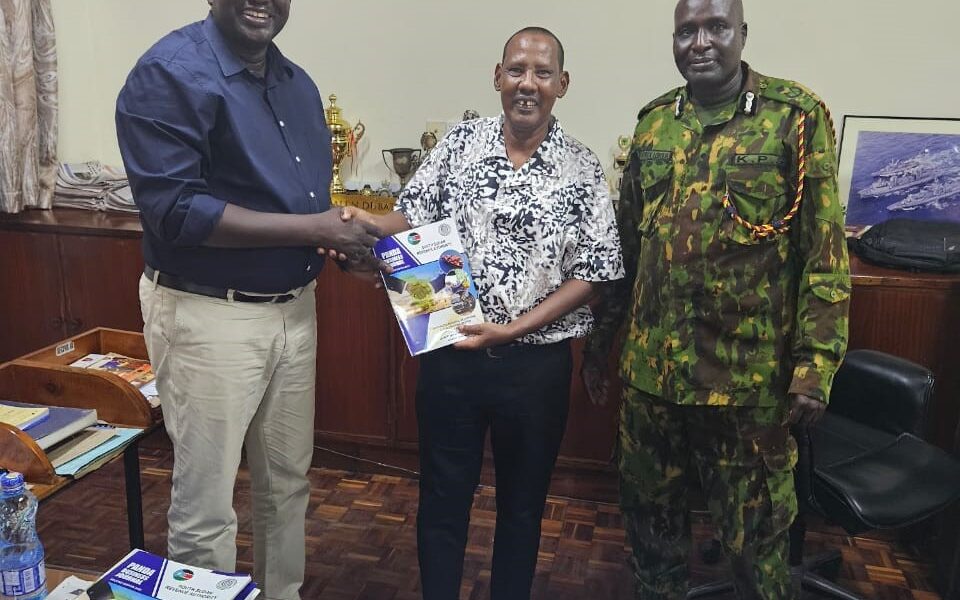By Morris Dogga
South Sudan is putting an end to years of cargo transport challenges with the full implementation of the South Sudan Revenue Authority Regional Electronic Cargo Tracking System (SSRA-RECTS).
This new digital system, now managed by local firm Panda Freight, Logistics and Handling International Ltd, promises to streamline operations, enhance security, and boost the nation’s non-oil revenue.
For years, South Sudan has faced several challenges in cargo transport, including the introduction of an Electronic Cargo Tracking Note (ECTN), security concerns, and infrastructure deficiencies.
These challenges led to delays, increased costs, and sometimes even the suspension of cargo shipments.
The logistics sector has grappled with major challenges, including increased demand and congestion, surging demand for faster and more efficient delivery services, unrelenting labor shortages, continued supply chain disruptions, rising fuel costs and higher customer expectations.
However, this will soon be a thing of the past, as the government has now mandated Panda Freight, Logistics and Handling International Ltd, an indigenous firm mandated by the South Sudan government to handle cargoes within the region.
Speaking at a recent official function in Kenya, Emmanuel Kachoul, Managing Director of Panda Freight, Logistics and Handling International Ltd outlined a comprehensive plan to modernize the sector through regional cooperation and technological advancement.
“Over the past ten years of actively engaging in the fields of freight, logistics, cargo handling, and statistical data collection across the East African region, particularly within the seaport sector, I have come to deeply understand that business is never static. It is a dynamic, ever-evolving interaction with the future, shaped by shifting trends and emerging technologies,” he said.
In the realm of logistics and cargo handling, global practices have seen a dramatic shift from manual operations to digital technologies. Today, cargo movement is electronically tracked and monitored in real time, signalling a transformative era in how goods are managed and secured throughout their journey.
Kachuol said it is within this context that the Government of South Sudan, through the South Sudan Revenue Authority (SSRA) and its designated implementing agencies, fully embraced and operationalized the South Sudan Revenue Authority Regional Electronic Cargo Tracking System (SSRA-RECTS).
This strategic move, Mr. Kachuol, who is also the Chairman of South Sudan Freight and Forwarders Association East Africa/Business Community, said, aligns South Sudan with international best practices and ensures that the country remains at the forefront of innovation in cargo management.
At Panda, Mr. Kachuol said the vision remains clear: to transform South Sudan’s cargo handling and revenue collection systems into a modern, digital powerhouse that propels sustainable national development.
“With the collaboration of our strategic and implementing partners, we aim to convert every border point, whether for inbound or outbound cargo, into a hub of efficient revenue collection. This initiative is critical to diversifying South Sudan’s non-oil revenue base, which is an essential pillar for long-term national progress.”
“Therefore, I passionately call upon all stakeholders to embrace this technological advancement with patriotism and purpose. Together, let us harness innovation to develop our beloved nation, South Sudan,” he appealed.
For years, East African Community (EAC) Heads of State have championed the vision of regional unity, encouraging citizens to embrace the immense economic and security benefits that come with it.
Mr. Kachuol said, “Now, it’s our turn to bring that vision to life through action”
“At Panda, we are proud to be part of this shared journey. One of our key focus areas is the Electronic Cargo Tracking System (RECTS), a transformative solution that’s modernizing how South Sudan manages cargo and collects revenue. This isn’t just a technological shift; it’s an economic game changer,” he said.
“Our promise is simple: to deliver efficient, transparent, and patriotic service that fuels progress and meets the highest standards, championing Non-Oil Revenue growth for a stronger South Sudan,” he added.
South Sudan’s strategic location, bordering six nations, presents an untapped economic opportunity. The borders are gateways for trade and revenue.
Mr. Kachuol stated, “By implementing the right infrastructure and systems like the RECTS, we can unlock our country’s full economic potential.”
The move has garnered support from key regional figures.
Addressing stakeholders recently in Mombasa, Dr. Deng Dier Diing, Executive Secretary of the Northern Corridor Transit and Transport Authority, underscored the importance of automating customs systems and ensuring their integration into the East African Community’s Single Customs Territory (SCT) framework.
The Single Customs Territory allows all member states to communicate and share customs data in real time, enhancing efficiency, transparency, and security in regional trade operations.
Dr. Diing also strongly advocated for full access by South Sudan’s mandated clearing agents to the Port’s clearing systems and portals, emphasizing that as a full member of the East African Community, South Sudan must be accorded equal operational privileges.
South Sudan is the second-largest user of the Port of Mombasa, after Uganda, highlighting the strategic significance of inclusive digital integration and regional cooperation.
The broader vision for national development is championed by figures like Dr. Bol Mel, who is recognized for his long-standing commitment to advancing South Sudan’s infrastructure and connectivity.
His work is seen as central to the nation’s economic emancipation and aligns with the current wave of bilateral agreements among East and Central African countries to improve infrastructure and boost trade.
Currently, East and Central African countries are actively signing bilateral agreements focused on improving infrastructure to boost trade, streamline cargo handling, strengthen security, and enhance regional connectivity.
This is a powerful catalyst for expanding national resources, and South Sudan is steadily taking centre stage in this transformative regional movement.




